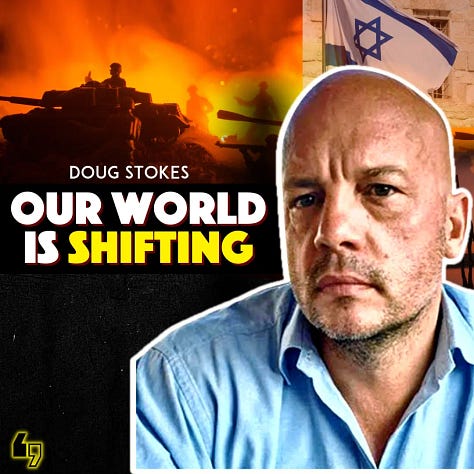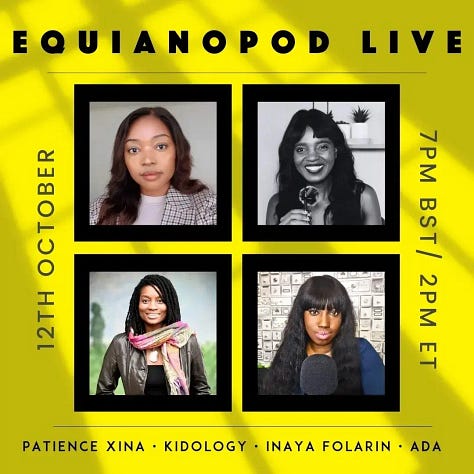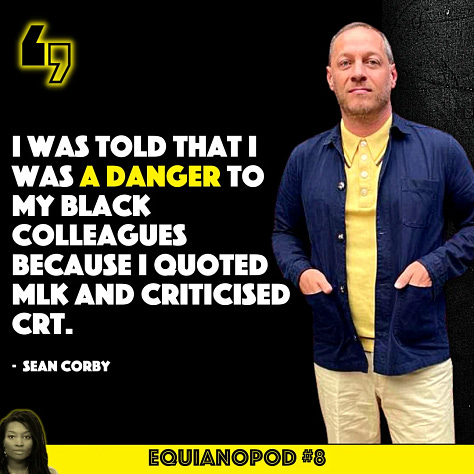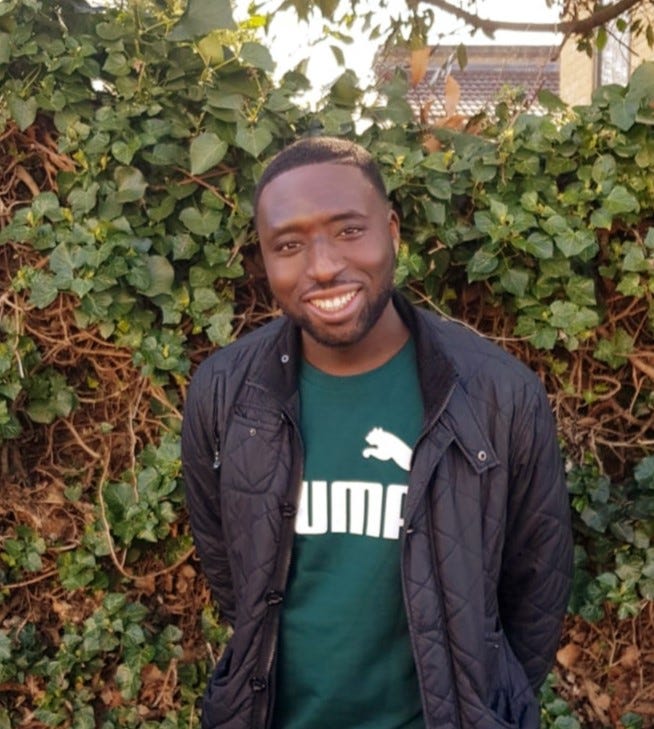The Curious Case of Modern Pan-Africanism
The attempt to renew 21st century Pan-Africanism via the antiracism movement raises serious ideological inconsistencies.
- By Jide Ehizele
Pan-Africanism is a global movement and philosophical thought centred on the betterment of African people and those of African descent (across the diaspora). The common goal is unity and racial solidarity between these groups. The idea is that under the banner of one race, they would be able to solve the issues facing “the African man.”
There is a line in Lesslie Newbigin’s book titled “The Gospel in a Pluralist Society,” which I think is helpful in underscoring the influence of sociocultural factors in the cultivation of philosophy.
"The reasoning of Aristotle was developed in the actual context of the life of Greek polis. The reasoning of John Locke was developed in the context of the rising property-owning citizenship of England of that period"
The origins of pan-African thought can be found in the struggles of the African people against enslavement and colonisation (as far back as the 18th century). We see in Olaudah Equiano, an enslaved African who once gains his freedom aims to inspire the West to treat Africans as equals. It was also during this time that we saw the Haiti Revolution, where the enslaved people of the French colony led the only successful revolt in history, resulting in the establishment of Haiti, the first ‘black’ independent state in the New World.
However, it could be argued that it was only until the start of the 20th century that Pan-African thought began to develop into a coherent movement. The first Pan-African Conference took place in London in 1900. It’s major agenda was to see the decolonisation of Africa and the West Indies. It demanded human rights and equality of economic opportunity. The series of congresses that took place over the following decades fuelled many anti-colonial and anti-apartheid movements. Interestingly, attendees were predominately members of the African diaspora and had been controlled largely by black middle-class British and American intellectuals. It wasn’t until the 5th congress of 1945 (Manchester) that black Africans made up a large proportion of attendees. Ultimately, though, all black groups were united in wanting to see a prosperous African reign.
Many of the leaders of the newly independent African countries (during the mid-20th century) were Pan-Africanists. In fact, Kwame Nkrumah, a prominent Pan-Africanist who became Ghana’s first president, adopted Pan-African colours for the country’s national flag.
As we reached the 80s and 90s, the optimism surrounding the ideology had died down. Ethnic tensions and military coups across several African nations had dampened enthusiasm across the continent. While in the diaspora, the black power movement (largely inspired by Pan-Africanism) in the US had been declining. By the 21st century, Pan-Africanism was in the doldrums. There was neither a coordinated movement nor many thinkers who identified with the philosophy.
However, one could argue that there has been a revival of Pan-Africanism through the lens of ‘antiracism’ in recent years. Largely, through the Black Lives Movement, specifically triggered by the death of George Floyd at the hands of a police officer during the summer of 2020. Demonstrations against the murder of Floyd were held worldwide, in the UK, France, Jamaica, Ghana, Nigeria, Brazil, the Dominican Republic, South Africa, and many others. The protests centred around “the black man being hated everywhere”. It was the first time in decades that we saw the African diaspora unite for a cause. In fact, Black Lives Matter protests inspired the protests groups such as #EndSars in Nigeria (movement against police Brutality), #ShutItAllDown in Namibia (gender based violence) and protests by black Brazilians concerning racism in their country. Black Lives Matter themselves released a statement, announcing that they stood in solidarity with #EndSars – highlighting the Pan-Africanist brotherhood.
However, beyond the surface of this Pan-Africanist sentiment is the ideology of antiracism. Antiracism is centred on the concept of systemic racism. The idea that racism is deeply embedded in our education, healthcare, justice systems, and communities. White supremacy is identified as the core problem as it upholds these structural and institutional factors that influence behaviours, attitudes and policies. Black Lives Matter has been a major proponent of antiracism.
This can been the organisation’s #EndSars statement (a portion seen below):
In the specific case of #EndSars, it does raise the question of how white supremacy could have impacted the actions of Nigerian police officers and citizens – who both happen to be black (so clearly anti-blackness is not a factor). To add to that, Nigeria was a sovereign and independent nation for 60 years (at the time of the police brutality taking place). It is difficult to see how colonialism or imperialism are factors here. I mean, SARS (Special Anti-Robbery Squad) was founded in 1992 and, while in operation, was subject to the Nigerian Constitution and the Nigeria Police Act (both devised and created by Nigerians). Therefore, this stuff about white supremacy being the cause of police brutality is incoherent and probably unintelligible to Nigerians. It simply doesn’t align with their experiences.
One begins to realise that for antiracism to be potentially coherent, it must be applied to societies where white people hold socioeconomic and cultural power (hegemony). This really just leaves the West. This is probably a good time to point out that just 3% of the black population resides in the USA and UK (where, as expected, the antiracism rhetoric is popular). This really highlights that the ideology has been cultivated within the context of ‘white western society', which the majority of black people are not subject to. A major stumbling block for any serious Pan-African ideology.
When we dig deeper into the idea of anti-racism as a tool of liberation for the African diaspora, we also trip into some fallacies. As explained earlier, antiracism is based on the idea that racism (white supremacy) is pervasive across all areas of society. Origins of antiracism thought can be found in critical race theory (a framework of analysis grounded in critical theory), which analyses how laws, media, etc are shaped by social conceptions of race. Interestingly, critical theory originated at the Frankfurt School during the European interwar period. The fallacy here is that if white supremacy is pervasive across society, how do we trust a white western ideological framework to correct systemic racism? Wouldn’t the framework be littered with unconscious biases? I mean, antiracists point to research that shows that people who believe that they are not racist are often much more prejudiced than they think they are. So the question begs: within the context of the antiracism worldview, does it make sense to look to antiracist experts such as Robin DiAngelo (a white woman) for solutions to black liberation?
It is quite clear that there are all sorts of incompatibilities between antiracism and Pan-Africanism. While the Black Lives Matter movement does provide a sense of Pan-African solidarity on the surface, a shared and united philosophy between the different black groups is clearly lacking. This also isn't helped by the rise in Afro-pessimism in the US, which started in the 1990s. Afro-pessimists see no shared identity that can serve as the basis for solidarity between Africans and African Americans. The Afro-pessimists reject the equation of the struggles of a permanent minority (African Americans in the US) with anti-colonial nationalism in Africa. This is a very different outlook from that of previous generations.
All these factors point to the unlikelihood of any effective Pan-African movement originating from the African diaspora right now, where antiracism is a popular narrative. Any Pan-African ideology that doesn’t make the socioeconomic progress of Africa it’s major agenda can’t really be called ‘pro-black’. This is where antiracists miss a trick. The only way to dismantle a global white hegemony (in its own words) would be to replace it with ‘black hegemony’ where ‘black’ universities, multinationals, research and development, etc are among the elite in the world. This is impossible to achieve if the continent (Africa) where 90% of black people reside, is left out of the discussion.
As politics lecturer Remi Adekoya and author of ‘It's Not About Whiteness, It's About Wealth: How the Economics of Race Really Work’ stated “If we are ever to speak of any kind of meaningful global racial equality, Africa must succeed”. As we come to the end of Black History Month, this should serve as a wakeup call to antiracist organisations whose agenda is “black liberation.”
Jide is a Christian thinker, born and bred in Lewisham. He has a fervent passion for socioeconomic issues and seeks social justice based on gospel ethics.
Check out more content on our YouTube channel.













'Woke' hasn't been with us in the UK for very long, 4 or 5 years if that? For many years before that I bemoaned what I called the 'black ideology' or 'blackism'. Black leaders have allowed or promoted a preoccupation with blackness. Pan-Africanism today may be more familiar to academics than to regular people, but there was a time when struggles against apartheid, US segregation, for anti-colonialism in Africa and national independence in the West Indies, involved masses of black people (and white people). Pan-Africanism brought these struggles together in the name of solidarity. The UK has now lost most of it's colonies, Apartheid has been dismantled and black Americans can freely ride on the bus, vote etc.
The worry then is that a contemporary Pan-Africanism will not be focused on solidarity and specific aims, but on 'racism'. For anti-racists today all of black history, liberation struggles and political campaigns are subservient to 'racism', as the definitive, dominating factor of black life and history.
This is a parody of Marxism, for Marxists class was the dominant social and historic entity in the development of human society. There were some crude Marxists who shoehorned every aspect of human society into this framework. Today black ideologues are doing this with race. Rather than looking at colonialism, slavery and segregation in their own terms, black ideologues are retrospectively imposing their own ideological understanding on the past.
The last 30 years has seen a profound failure of black leadership and intellectual development. I don't think that we will get far by attempting to resurrect 'pan-Africanism', we really do need to think afresh.
There is nothing wrong with solidarity, but the black ideology is imposed from above by self-selected leaders and unity is presumed rather than argued for and created. The black ideology today is dominated by antiracism, we might even call it anti-whitism. Black solidarity is presumed, black and white solidarity is not considered possible.
The symbol of the defiant black fist, should maybe be replaced by a giant white thumb, to reflect the mindset of today's abject black ideologues.
In line with the StopSars-protests + keeping in mind Kenyan author Ngugi wa Thiongo's argument in 'Decolonizing the mind' (1986) (e.i. the African mind) + acknowledging that you don't need 'white people' around in order to reproduce 'whiteness' ('whiteness is not a color at all, but a set of power relations' (Jamaican philosopher Charles Mills in 'The racial Contract' 1997) , I quote Guyanese historian Walter Rodney: 'the Black police force of Jamaica have demonstrated that they can be as savage in their approach to black brothers as the white police in New York, for ultimately they serve the same masters” (Rodney 1969)